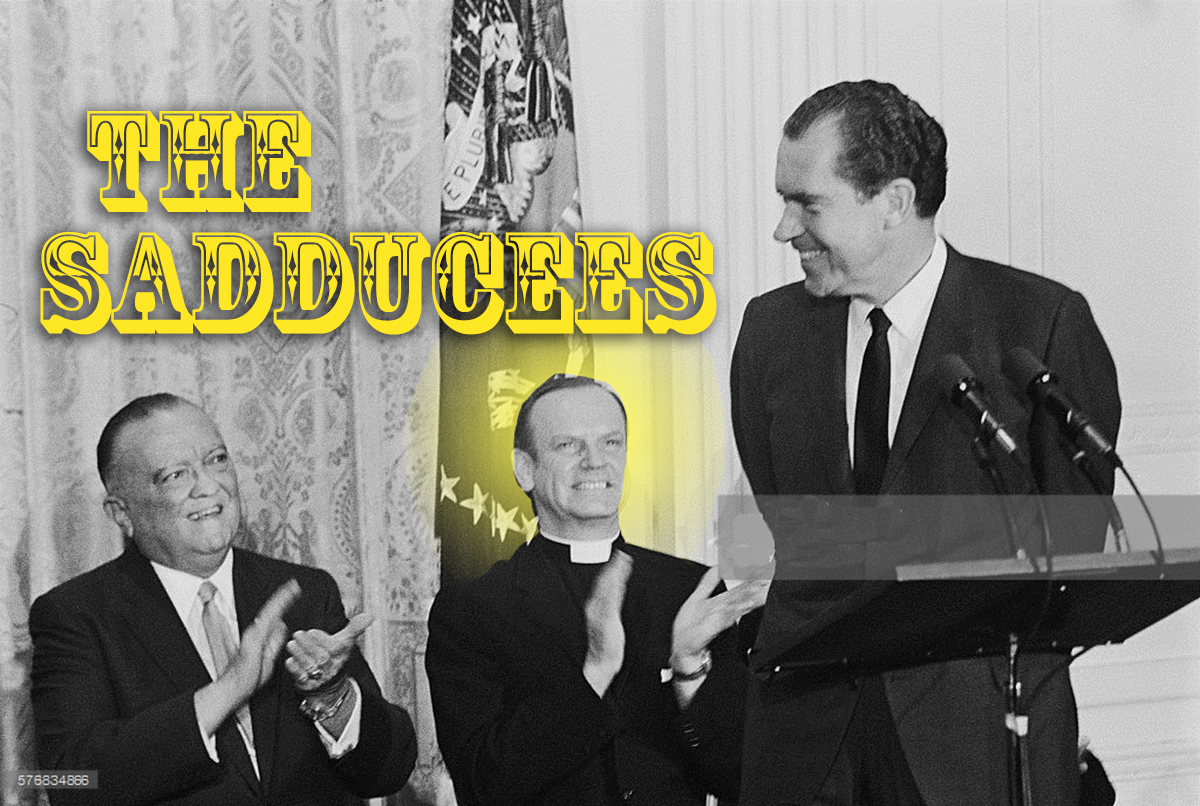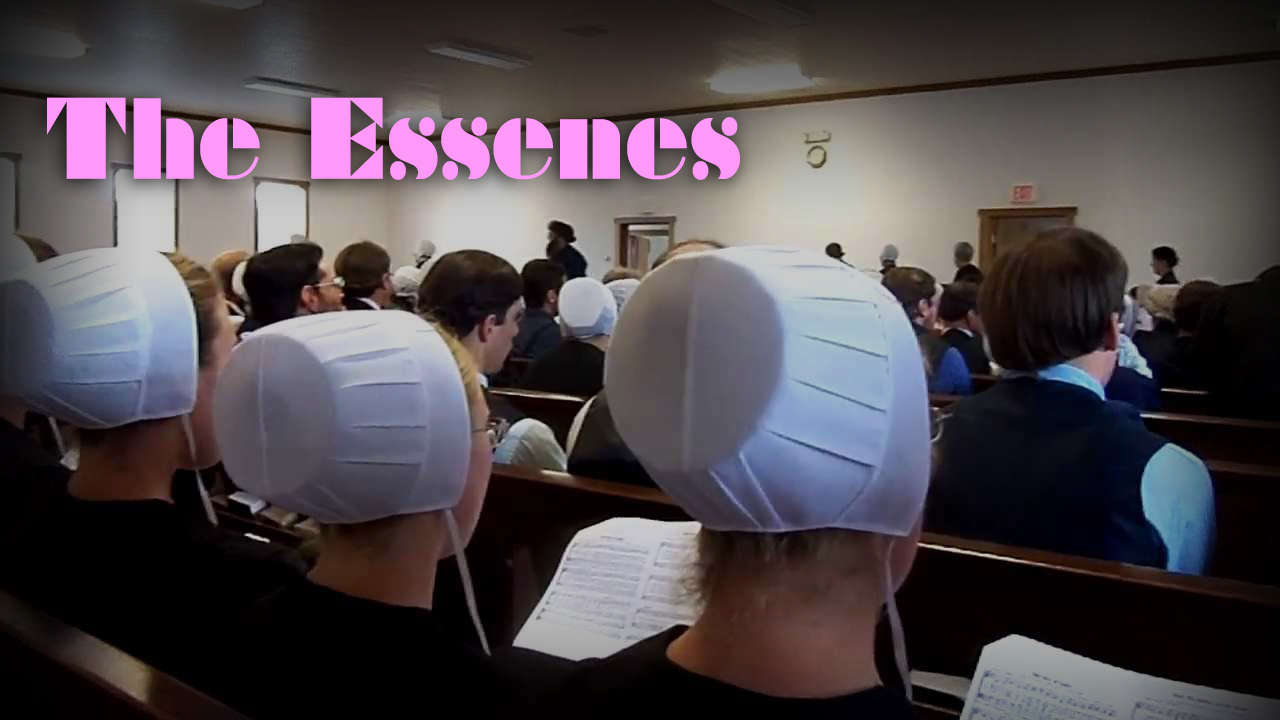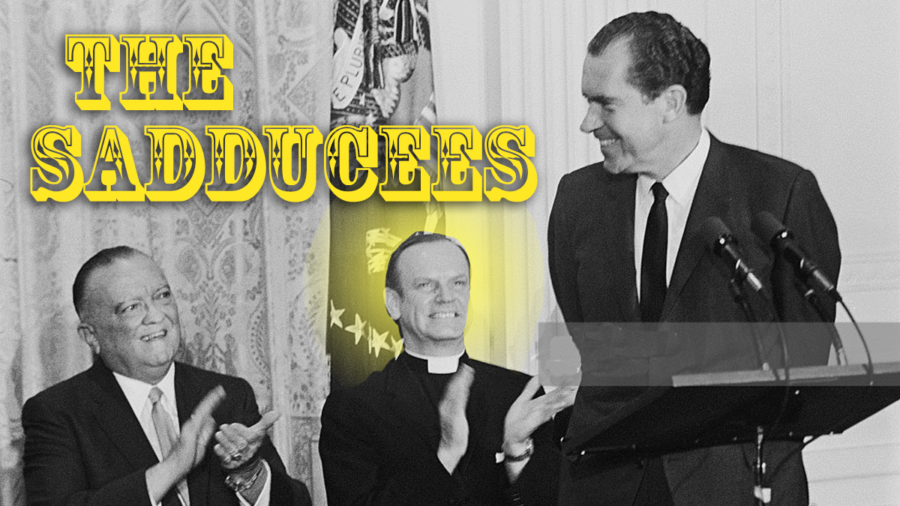The following is excerpted from a 2017 sermon on the Kingdom of God at the Vineyard Grand Rapids, offered here without citations. Admittedly, in trying to introduce ancient cultural phenomena to a church audience of varied interest levels, the categories are necessarily over-simplified, caricatures of complex cultural cultural movements. Still, my hope is that they help us consider how little has changed from the 1st century until today.
At the time of Jesus, the 1st century, social/political viewpoints were as varied as they are today. Within ear shot of Jesus’ proclamation to Israel, we know of at least six types of people.
Before we begin, I want to ask you not to judge them too harshly, because Israel had had a pretty rough go. Oppressive government, politicians who promised one thing and done another, economic recessions/depressions, poverty, unemployment, threats from foreign powers, eventual invasion and desecration of their nation, and exile. By the time of Jesus, they are back in land but now they’re occupied by the foreign Roman superpower. The nation has descended into an ethnocentric, nationalist cauldron of fears and angers and hopes. They are a hopelessly divided society, divided by racial hostility with the Samaritans and Gentiles and united only by the belief that “God is on our side.”
These cultural groups representsix different visions for a world made right, six different visions of the kingdom of God.
You’ve probably heard of the Pharisees. The Pharisees get a bad rap, which is unfortunate, because the Pharisees were not cruel legalists, bent on making people lives hell, imposing all manner of ridiculous laws. The Pharisees were like a modern Bible study discipleship movement.
They believed that if they could call Israel back to simple, pious faithfulness they could be speed up the return of God as king, the return of a messiah to deliver the people from Roman occupation. And since the law of God is so hard to follow, they tried to assist by making it simple and plain…not to destroy people, but to help them figure it out. Their vision of the kingdom was probably closest to Jesus story, which is why he argued with them so much. (You don’t argue with people whom you have no common issue.)

The other group you’ve probably heard of are the Sadducees. I know this is probably hard to imagine these days, but once upon a time there were a group of religious people that imagined they could make Israel great again by compromising their moral values and playing the political game.
Some of them had even risen to prominent political power in the Sanhedrin. The high priests had decided it’s a dog eat dog world and the only way to bring anything good to this country is to play the Roman’s game: to seek political power whatever the cost.

Then there were the Essenes: separatists that just decided the whole culture had gone mad, and they moved out to places like Qumran to bury the Dead Sea Scrolls. They decided, “we’ve had enough, we’re going to take our families out to the stix, homeschool them, live our way of life apart from society. Somebody needs to really follow God’s law if there’s going to be hope for our nation, and we alone are going to do it.”

Next up is the zealots. These are the guys that insist on a right to bear arms, and they’re not afraid to use them. They figured that sometimes the only way change can come is by blood and glory. They saw themselves as freedom fighters. Even if they couldn’t beat the Romans, they could provoke a war—God would surely have to intervene.
Another group you may not of heard of are the Sicarii. They are so named because they carried around a pocketknife called a sicar. They figured that the the real problem for Israel was all these foreigners who refused to assimilate to Jewish law and culture. So naturally, they carried around a primitive scalpel so they could perform an on-the-spot circumcision whenever they got hold of one of those troublemaking immigrants.

We might also think of the tax collectors. These are the people that just watching the world burn, putting their desires first. We may not be used to thinking of theirs as a kingdom vision, and yet they certainly are committed to a certain societal order. Their priority seems to be lining their own pockets and living in the lap of luxury now.
The one thing all these groups had in common is that they were looking for the kingdom of God. And yet there plan for establishing God’s kingdom didn’t look anything like God’s “will being done on earth as in heaven.” When Jesus arrives, he announces, you’re going to have to repent, turn around—you’re headed in the wrong direction. Because sometimes our visions of the kingdom aren’t actually Kingdom of God at all, they are the kingdoms of this world, and they are very, very dark.
We can look around the world today and see that almost everyone is looking for a version of the kingdom: a world set right again. Christians don’t have a corner on the pursuit of the kingdom. What do you think Isis is looking for? The kingdom of God! They believe they have a plan that will make the world right again. What are the Amish looking for out on their farms and communes? What are Trump supporters looking for? They’ve bought into a story, a story how to make the world right in great again. What are progressives looking for? They have a story about how the world can be set right. How about what we used to call the Religious Right? The Moral Majority? How about the marchers in Charlottesville? We may not use the name, but humanity is united by the search for the way things are supposed to be, and that is the kingdom of God.
In a world not so different from our own, Jesus strolls in and says the kingdom of God is right here—but you’ve got to turn around and repent. You’ve got it all wrong. Jesus proclaims a summons to turn from our false visions of the world set right—to accept that God’s plan is not going to look like the plans of this world. Never will it involve violence, religious coercion, retaliation, oppression, or ethnocentric protectionism.
To the holy warrior, Jesus would say repent: the kingdom is never going to come about by extinguishing the voices of your opponents.
To the isolationist, Jesus would say repent: God’s plan is never going to look like a self-centered separation from society. The plan is not to wait around for evacuation to heaven.
To the Bible thumper, Jesus says repent: the kingdom plan of God is never going to come by wagging your finger at the sinful world and shaming them into accepting your moral program.
To the social progressive, Jesus would say repent: true justice and equality is not going to come to the world through better education, redistribution of resources, better policy making…something more fundamental has to change.
To the greedy materialist who says life is all about creating my own private island of consumer luxuries, repent: none of those things lead to a world you would want to live in.
Instead, Jesus makes the offensive claim that God is indeed restoring his world to beauty, and goodness, and wholeness and peace, but it all begins right now, right here in him.

